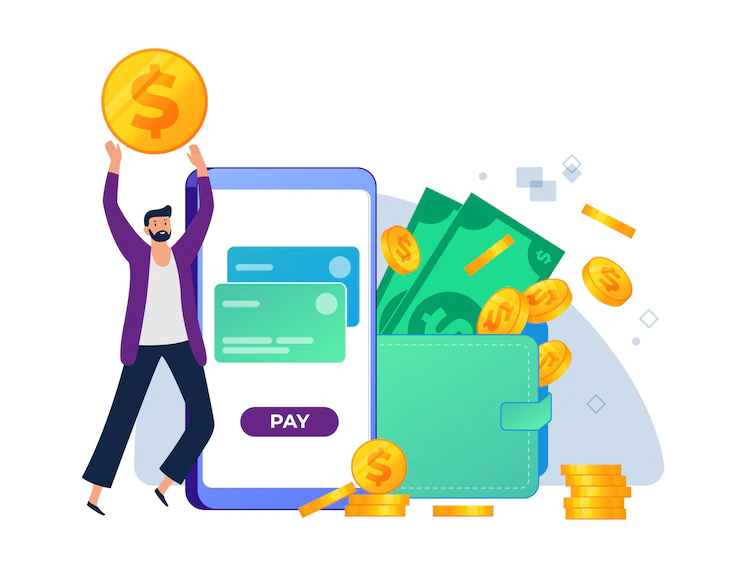Let’s be honest—crypto arbitrage trading sounds like one of those big, intimidating concepts. But what if we told you that you could make money just by buying low and selling high… on different exchanges?
Yep, that’s the whole gist of it.
Despite the Central Bank of Nigeria’s crypto restrictions, the adoption of cryptocurrency in Nigeria continues to surge, with traders leveraging digital assets as a hedge against inflation and the devaluation of the Naira. However, while many focus on long-term investments or day trading, crypto arbitrage remains an untapped yet highly profitable opportunity.
In this guide, you’ll learn exactly how spot crypto arbitrage works, why it matters, how to pull it off like a pro and make money from crypto, even if you’re a total beginner.
What is Crypto Arbitrage?
Crypto arbitrage involves buying cryptocurrency at a lower price on one exchange and selling it at a higher price on another. For instance, if Bitcoin is priced at ₦25,000,000 on Exchange A and ₦25,500,000 on Exchange B, traders can earn ₦500,000 in profit (minus fees).
This is possible because different crypto trading platforms offer different rates, which fluctuate depending on the market. Basically, crypto arbitrage involves you buying, for example, Bitcoin from one exchange for a specific price, then proceeding to sell that Bitcoin on another exchange platform that offers a higher rate, which will then give you your profit.
Types of Crypto Arbitrage Trading
There are several types of crypto arbitrage trading, each with its own approach:
- Spot Arbitrage: Buying and selling immediately across exchanges.
- Interest Rate Arbitrage: Leveraging differences in lending/borrowing rates.
- Triangular Arbitrage: Exploiting price inefficiencies between three cryptocurrencies.
- Statistical Arbitrage: Using algorithms to identify price inefficiencies.
⚠️ Heads up: This article only covers spot crypto arbitrage; Unless you have advanced tools or capital, spot arbitrage is what is easily attainable for beginners.
Requirements for Crypto Arbitrage Trading in Nigeria
Crypto Arbitrage Trading is typically simple and straightforward, but before you dive in, here’s your checklist.
1. Accounts on 2+ Trusted Exchanges
Use reputable, liquid platforms. Examples:
- Binance
- KuCoin
- Bybit
- OKX
- Bitget
Avoid low-liquidity exchanges that might delay withdrawals or manipulate spreads.
2. A Stable Internet Connection
Crypto markets move fast. Even a 1-minute delay can cost you your profit margin.
3. Funds (Preferably in USDT or Naira)
Start small to reduce risk. You can begin with as little as ₦100,000, though having ₦500k or more gives more room for noticeable gains.
4. Price Tracking Tools
Price tracking tools that can help you monitor crypto prices across multiple exchanges. Examples are Coinmarketcap and Coingecko. These can help you observe discrepancies in prices between exchanges, allowing you to take advantage of arbitrage opportunities.
How to Find Crypto Arbitrage Trading Opportunities (Manually)
You don’t need fancy tools to get started. Here’s a simple method:
- Open two exchange tabs (e.g., Binance and KuCoin).
- Check the price of the same asset pair (e.g., BTC/USDT, ETH/USDT, USDT/NGN).
- Calculate the price difference after accounting for:
- Trading fees
- Network withdrawal fees
- Transfer time
Example: If USDT is ₦1,300 on Binance and ₦1,350 on KuCoin, and the total fees per trade are ₦20, you’re looking at a ₦30 profit per USDT.
Multiply that by 1,000 USDT? That’s ₦30k.

Tips For Running a Successful and Profitable Crypto Arbitrage in Nigeria
A Sample Crypto Arbitrage Trading Flow
Let’s say you’re moving USDT between Binance and Bybit:
- Buy 500 USDT from Binance P2P at ₦1,290 = ₦645,000
- Send USDT to Bybit (Network fee: ~1 USDT)
- Sell 499 USDT on Bybit at ₦1,325 = ₦661,675
- Net Profit ≈ ₦16,675 (excluding minor trading fees)
Note: These prices are just examples; always check real-time prices and fees.
Risks You Should Know
Crypto arbitrage isn’t risk-free. But let’s cut through the exaggerations and highlight the real risks:
- Volatile Price movement during transfers: You buy high but end up selling lower if prices shift.
- Withdrawal delays: Some exchanges might hold your funds due to KYC or congestion.
- Network fees – Certain tokens (like ETH) have expensive gas fees.
- Exchange limits or verifications – You may need to complete KYC to withdraw larger amounts.
Pro Tips for Crypto Arbitrage Success
- Use fast networks like Tron, Solana, Polygon, etc. for cheaper, faster transfers.
- Always double-check wallet addresses.
- Withdraw small test amounts first.
- Monitor Naira P2P markets closely, as they can shift quickly.
- Avoid FOMO. Don’t jump into trades without calculating fees and timing.
Also Read: How To Make Money Online With P2P Trading In Nigeria
1. Timing Is Important:
In the cryptocurrency arbitrage business, you need to be time sensitive and avoid slacking off. The crypto market is unpredictable, so you need to be on your toes.
We have continuously mentioned the cryptocurrency market’s volatility, so you should now understand that crypto prices are not the same every day. The prices are constantly changing, and you might lose your profit if you waste too much time selling it.
2. Critically Analyze Opportunities:
While engaging in arbitrage trading, you’ll be presented with many opportunities; indeed, time is of the essence with crypto arbitrage; however, you must also weigh your options and opportunities well and choose the best option. If you make a wrong move, it can lead to losses.
Conclusion
Crypto arbitrage trading is definitely not a “get-rich-quick” hack, but it’s a smart hustle that works—especially in Nigeria’s active crypto ecosystem.
So if you’ve got internet, access to exchanges, and a brain that likes maths and movement, then what are you waiting for?
Remember to stay informed, adapt to market changes, and prioritize the security of your assets before profits.
If you found this helpful, check out more beginner-friendly and advanced crypto guides on the Breet Blog—your go-to for smart, safe crypto learning.







